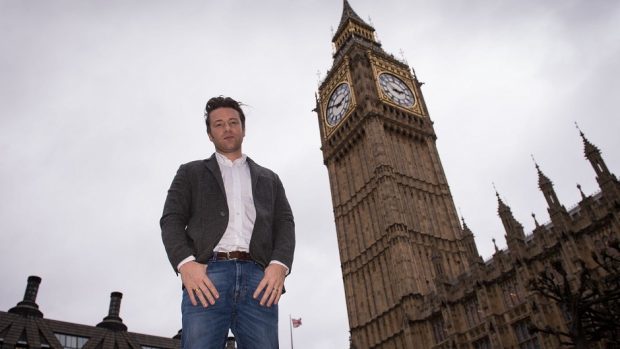Celebrity chef and food campaigner Jamie Oliver has attacked Brexit for “blowing up” the strategy to tackle childhood obesity he had worked on with David Cameron.
Mr Oliver said the strategy had stalled under Theresa May and he wanted to see it toughened up with a range of measures across the country.
NHS Grampian has one of the worst rates of childhood obesity in Scotland and, although the Scottish Government currently has its own world-leading obesity strategy, unresolved tensions remain over which government will have the final say on certain devolved matters, for example food labeling, post-Brexit.
MPs on Westminster’s health and social care committee took evidence from Jamie Oliver and fellow chef and campaigner Hugh Fearnley-Whittingstall on how to tackle the issue.
“I worked with Mr Cameron within his group to formulate chapter one, which of course, with Brexit and everything that happened got blown up,” Mr Oliver said.
“Mrs May took over, they pushed it out.
“It’s now time for a much sterner, broader, intelligent and strategic attack on childhood obesity.”
The two chefs praised the sugar tax, which has been brought in across the UK, as a “tax for love” and said it should be extended to milk products like milkshakes and yoghurts.
They also wanted to see a clampdown on companies trying to wriggle out of tighter food labeling, such as the traffic light system for fat and sugar.
Mr Fearnley-Whittingstall named and shamed Kellogs and Nestle for refusing to sign up to consumer-friendly labeling.
“If you don’t get everybody on the same level playing field these companies will duck and dive and invent their own version of what a portion is,” he said. “There need to be consequences for businesses who don’t comply with that.
“You either make it absolutely mandatory or you make incentives for those who sign up and consequences for those who won’t.”
And they flagged up the link between advertising of unhealthy food and childhood obesity, citing research that watching one advert a day was correlated with eating an extra 18,000 calories per year.
Mr Oliver called for an extension of the TV junk food advertising ban extended to 9pm but said he hoped advertising could be used to boost consumption of healthy food like fruit and vegetables.
“I think a fundamental change in advertising is needed, absolutely,” he said.
“Without question it is immoral not to have a view on the relentless advertising of high fat, high sugar food to kids.
“But I don’t want to make Tony the Tiger redundant – I want to see him promoting porridge oats, Weetabix, Shreddies and any healthy breakfast cereal that makes you glow as you walk to school.
“I want to see aspirational figures like cartoons and superheroes that reel in our children to be used for good.”
